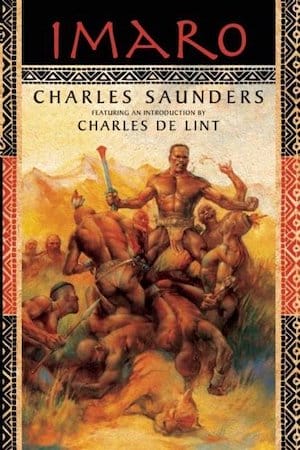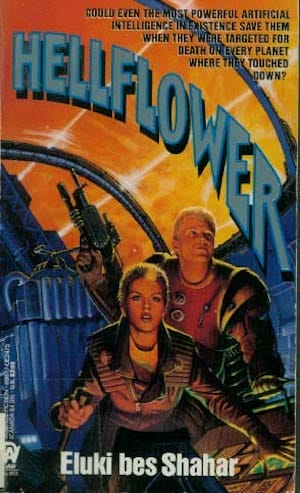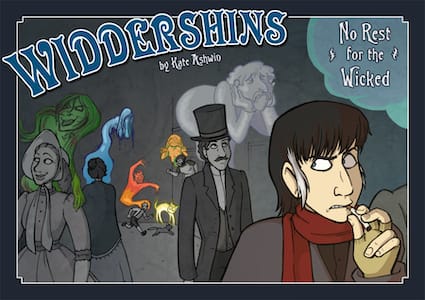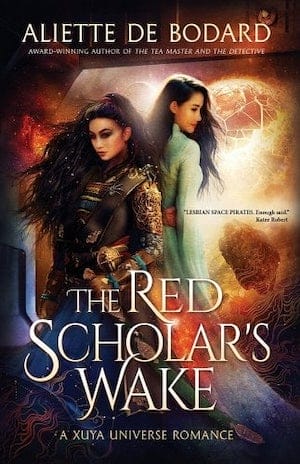Many authorities believe (and have believed, throughout history) that order and tranquility are best assured by draconian laws inflexibly applied. Sometimes this policy has discouraged undesirable behavior; perhaps more frequently, it has convinced the populace that they might as well be hung for a sheep as a lamb. Hence the career of Liu Bang (256–195 BCE), who might never have become Emperor Gaozu of Han if he hadn’t adopted the sheep-stealing option.
Authors have not been slow to understand the plot potential of firmly applied rigorous laws. Consider the five works noted below.
Imaro by Charles R. Saunders (1981)

Recognizing that her intended Chitendu was a malign sorcerer, Kitasa refused to marry him. Rejecting the husband selected for her, even a monster like Chitendu, was an offense against Illyassai law. Worse, Kitasa then became pregnant by an unnamed, non-Illyassai man, which was a transgression deemed worthy of death. Saving the Illyassai from Chitendu bought her mercy: five years to raise her son Imaro, then exile.
Imaro is considered a paragon of virtue in all ways save one: his features declare that he is half-foreign. Regardless of Imaro’s martial prowess or courage, the Illyassai will never be able to forgive Imaro’s ancestry. Thus, the young man abandons his mother’s people and sets out to find his destiny elsewhere on the continent of Nyumbani.
No grand sword-and-sorcery hero ever came from a happy household.1 That granted, the Illyassai go above and beyond their duty to provide Imaro with a past he is happy to leave behind him, as well as a challenging upbringing that will ensure he survives what lies ahead.
Hellflower by Rosemary Edghill, writing as eluki bes shahar (1991)

The Phoenix Empire is notable for its diligently applied and rigorous laws. These include strict border controls. Persons from proscribed worlds are subject to the death penalty. This is true even if, as in the case of Butterfly St. Cyr, they were kidnapped by slavers and carried off into the Empire before they escaped.
The Empire cannot execute Butterfly more than once. Thus, she does not hesitate to rely on the services of Paladin, an AI as illegal as Butterfly herself, to facilitate Butterfly’s smuggling. How unexpected that the very Empire that would summarily execute Butterfly will come to depend on her for its continued existence.
Hellflower is a very Andre Norton-esque novel, one that features dead or dying civilizations, surprisingly affordable star flight, unsympathetic governments, even more unsympathetic organized crime, and existential threats viewed from the very bottom of the social heap.
The Unit by Ninni Holmqvist, translated by Marlaine Delargy (2006)

Dorrit Weger steadfastly avoided the roles decreed for her by Swedish society. Dorrit never married, she had no children, and she prioritized personal satisfaction over earning high wages. When Dorrit reaches her fiftieth birthday, the state provides her with a socially responsible role she may not turn down. Removed from her home, stripped of everything, she is consigned to the Second Reserve Bank Unit, where over the course of time her organs will be removed to extend the lives of useful Swedes.
The authors, artists, homosexuals, and other non-conformists deemed useless by the powers that be are considered to be valuable biological resources, and thus are pampered during their short lives in the Unit, to ensure that their betters will receive top-quality organs. Dorrit would be well advised to enjoy her new life, for it won’t be a long one. Dorrit is ever the obstructive non-conformist; the resulting pregnancy will be quite the problem for the Swedish state.
In an interesting contrast to other science-fictional mandatory organ donation systems I could have mentioned, Holmqvist’s is self-sabotaging. The Swedes are burning through their supply of expendable people and the Unit system will soon collapse. Although not in time for Dorrit.…
No Rest for the Wicked by Kate Ashwin (2013)

A friendly altercation in a pub lands Jack O’Malley and his pal Wolfe in front of a British judge. England’s Bloody Code pays no heed to mercy—by all rights O’Malley and Wolfe’s stories should have ended at the end of a rope. But O’Malley can see malevolent spirits, a talent rare enough that Councilwoman Fairbairn buys O’Malley and Wolfe out of prison and into her service.
Wizard third class Ben Thackery can dispel evil spirits but he cannot see them. O’Malley will play guide for the wizard. Wolfe has neither magic nor second sight, but he does possess great intelligence and unquenchable curiosity. It is Wolfe who begins to wonder at the increase in malevolent spirits and question their source. It is a question that may be Wolfe’s death sentence.
The Red Scholar’s Wake by Aliette de Bodard (2022)

In its infinite wisdom, the An O Empire does not distinguish between being captured by Red Banner space pirates and joining them of one’s free will. Thus, Red Banner prisoner Xích Si can never return home without being executed. She cannot even contact her family to let them know she is still alive, for to receive messages from pirates is deemed abetting piracy and is also subject to the death penalty.
Two likely fates await Xích Si. If useless, she will be killed by the pirates. If useful, indentured. Neither of these outcomes results. Rather, mindship Rice Fish proposes marriage to the astonished prisoner. In exchange for Xích Si’s assistance uncovering the traitor who murdered Rice Fish’s late wife, Rice Fish offers the protection of a loveless marriage to a senior Red Banner pirate. It is an offer Xích Si cannot refuse.
Readers familiar with mystery and political intrigue tropes may very well guess that the probable lifespan of an amateur detective looking for a wily, powerful foe will be very short. Well, it will all depend on how cunning Xích Si can be under pressure.
***
There have been many, many stories about draconian legal systems. No doubt I may have overlooked some well-known favorites. Feel free to berate me for my oversight in comments below.
In the words of fanfiction author Musty181, four-time Hugo finalist, prolific book reviewer, and perennial Darwin Award nominee James Davis Nicoll “looks like a default mii with glasses.” His work has appeared in Interzone, Publishers Weekly and Romantic Times as well as on his own websites, James Nicoll Reviews (where he is assisted by editor Karen Lofstrom and web person Adrienne L. Travis) and the 2021, 2022, and 2023 Aurora Award finalist Young People Read Old SFF (where he is assisted by web person Adrienne L. Travis). His Patreon can be found here.
[1]I claimed that no sword-and-sorcery hero ever had a happy childhood. I should perhaps qualify that. I cannot think of any such heroes. Can you?











There was the first season episode of ST:TNG that came oh so close to sparing us any more Wesley Crusher.
I hate to bring up a book that I didn’t finish, but Ricardo Pinto’s The Chosen (first volume in his trilogy, The Stone Dance of the Chameleon) has a set of labyrinthine laws that amount to Calvinball for the upper elite and one strike and you’re out (dead or mutilated) for everyone else. A system that Americans (in the country that imprisons more of its people than any other on earth) can be thankful we don’t have. The extreme cruelty of how the laws were applied was the reason I stopped reading what seemed to be a highly original work in a very exotic setting. Just weak-minded, I guess.
Paul Connelly @2:
I hate to think what my fate would be if ‘not finishing books you started’ and ‘buying books but not reading them’ were capital crimes.
The Judge system in Judge Dredd seems like a shoo-in, with things like eating sugar landing you for a multi-year stint in the iso-cubes.
In Victoria Goddard’s Hands of the Emperor, we find that in the old Empire, looking into the eyes of or touching the Emperor’s person, not only led to physical damage- blinding or being burned, but execution as well.
Sorry- duplicate comment. Guess I’ll throw in Larry Niven- particularly the story where the criminal’s having destroyed an organ bank isn’t brought into court, since they have can easily convict him/sentence him to those same organ banks on the crime of running a red light.
I suppose Judge Dredd was too obvious?
I have not really read Judge Dredd.
“No grand sword-and-sorcery hero ever came from a happy household”
hmm… Rand Al’Thor’s childhood seemed to have been pretty nice
Does Jo Walton’s Tooth and Claw count?
Don’t think we know that much about Conan’s childhood, but it at least doesn’t seem to have been unhappy in any way that was seen as worth mentioning (at least from what I recall of the stories).
mikeda@11: In the film (there is only one), at least, it was certainly a happy enough household until Thulsa Doom came along.
@11, the “carried off into gladiatorial slavery” narrative, of course, was an invention of the Schwarzenegger movie, but I believe the canonical Conan was at least “born on a battlefield,” which perhaps didn’t bode well for a happy childhood. Or maybe it did, maybe battle is just what makes Cimmerians happy.
In Farscape it didn’t take much for a Peacekeeper to be “Irreversibly contaminated” and consequently executed, which in the long run made Aeryn definitely think she might as well take the sheep.
I love a Hellflower reference! Melissa Scott’s Five Twelfths of Heaven also fits this list, I think; as a woman reader the Hegamony seemed quite draconian to me.
To answer your question, it is easy to provide a story catalyst by giving your protagonist an unhappy childhood, but it isn’t the only way to go. I think The Traitor Baru Cormorant was not unhappy as a child.
The new cookie management button (bottom left, looks like a painters palette) covers the leftmost bits of the footnote.
Not sure where to go with this info, so I’m posting it where I first saw the issue.
Surely it’s worth mentioning Susan Matthews’ An Exchange of Hostages and sequels (in the Jurisdiction series)? A ghastly space operatic empire in which the roles of judge, surgeon, and torturer are combined in the post of Ship’s Inquisitor, to which naive young doctor Andrej Koscuisko is conscripted (he doesn’t remain naive for long) …
In An O, one of the services provided by pirates would be to have your enemies receive a steady stream of messages from pirates, no?
@15: that matches my recollection: Baru’s upbringing is quite happy until the empire comes along and decides that she’s in a non-traditional family (by the empire’s view, not local custom) and stomps on it.
A deservedly-obscure novel that was my first reaction to the title: The Venetian Court, by Charles L. Harness. Violating a patent is a capital crime with no appeal; losing defendants are required to immediately drink poison. (An especially vile judge looks forward to this as a way of unknotting writer’s block.) Are we surprised to know that Harness was a patent lawyer in real life?
There are a lot of stories in which the laws vary but the sentence is brutal (as in @17). cf Emphyrio, in which the penalty for misbehavior is expulsion — enforced by a piston running down an alley with a wall at the border, since living in some other polity couldn’t possibly be preferable; or a van Vogt story in which judges are also executioners, with variations in the judgment allowing the defendant some form of armament (which they don’t know how to use, while judges have regular pistol practice); or a story from the 1950’s in which there are no traffic laws, just arena duels (on motorcycles, with whips) over perceived offenses — but a ~court measures the offense and decides how much protection each duelist is allowed. (Someone who ran down a child gets a nothing — except a throat collar, to prolong the show. I remember this being in best-of-Galaxy that I no longer own.)
@9: But The Wheel o’ Time, whatever else it may be, is not sword’n’sorcery; it’s epic fantasy, and metastized epic fantasy at that…
Worth mentioning: Pohl & Kornbluth’s Gladiator-at-Law.
Absolutely required reading: the two classic dystopias, Nineteen Eighty-Four and (for some value of draconian legal system) Brave New World.
Theres the Gowachin legal system from Frank Herbert’s The Dosadi Experiment and other stories.
How about the Instrumentality of Mankind, by Cordwainer Smith? First of all, it doesn’t get mentioned often enough, but also the underpeople suffered under a brutal and oppressive regime, where they were killed if they sneezed three times or vomited once.
Not to mention The Crime and Glory of Commander Suzdal.
@14: Indeed. As I recall, it was just her saying “No, this guy isn’t what he looks like, something else is going on here” to a superior officer. Granted, said superior officer was emotionally compromised, but nobody seems to have seen his reaction as wrong.
And of course, Sun was right…
Reading through this thread reminds me of a real-world incident in the history of imperial China.
“Hey, buddy, what’s the penalty for rebellion against the Emperor?”
“Death, dude.”
“And what’s the penalty for being late to work?”
“Death again, dude. You know this. The Emperor has decreed that the penalty for every crime is death.”
“Well, buddy, I have to tell you…we’re late.”
Regarding heroes with happy childhoods, when I started playing D&D, I gave my character a loving family and living parents as part of her backstory. Only later did I learn that this made her a unicorn among D&D characters. Given how much trauma and identity crisis I’m putting her through in the campaign, however, I think she earned her idyllic youth.
First thing that springs to my mind is M. J. Engh’s Rainbow Man, in which the heroine’s infertility turns her romance with a man into a crime punishable by the closest thing to eternal torment that technology can provide. I originally rejected the premise as implausible, and wish I could still feel that way.
@23: I believe that would be the Liu Bang mentioned in the article.
Jenny Islander @23: “A more humane Mikado never did in Japan exist…”
Alexandra Rowland’s A Conspiracy of Truths opens with the protagonist facing a kangaroo court on charges ranging from witchcraft to impertinence (which is apparently a crime locally). He then spends most of the rest of the book in a cell, telling stories to his various guards and interrogators. It appears that the draconian laws are normally tempered by bribery, but the protagonist has no money.
@23 Of course China came up with some creative solutions to that whole “why not rebel?” thing.
“Under the Hongwu Emperor (r. 1368 – 98), those committing rebellion and treason were punished by having their parents, grandparents, brethren (by birth, as well as “sworn brothers”), children, grandchildren, those living with the criminal regardless of surname, uncles, and the children of brethren put to death, as well as death for the rebels themselves by slow slicing or lingchi.”
(Maybe turning oneself in for lateness isn’t such a bad idea after all?)
Rachel Neumeier’s Tuyo secondary world fantasy series has a couple of plotlines driven by a similar punishment incurred in “Tarashana” and resolved in “Tasmakat”. Another book, “Keraunani”, focuses on someone who might or might not get caught in that penalty’s web.
In the Recluse series the Magisters ruling Recluse will exile you if they decide you have too much chaos in your soul on pain of death if you return without permission. No trial, no judge, no representation.
The intergalactic authorities in Heinlein’s “Have Spacesuit–Will Travel” pass judgment on entire species based on a remarkably small sample size, on penalty of “rotation”: of one’s planet, by 90 degrees relative to all normal spatial dimensions, without their sun. Tough luck on the rest of the population and ecosystem if the wrong first contactee wins a soap contest.
26: came to my mind as well – the very clever rebelllion-through-compliance plot. Unhappy at a new law imposing the death penalty for flirting, the citizens of Titipu take the first man convicted under the new law and appoint him official executioner. And condemned men have to be executed in order of conviction.
Legally, therefore, he can’t execute anyone else until he’s executed himself first.
Also from Star Trek (DS9): Miles O’Brien found out that trials on Cardassia do not decide whether you are imnocent or guilty; they’re meant to show the public *why* you are guilty.
@20: I’d say Gladiator-at-Law is about economic brutality (and to a slight extent the way law supports it, as happens in many societies), rather than draconian laws per se; Belly Rave is a private development, and the arena competitors are volunteers rather than convicts.
@25: I need to correct myself. On further research, that sounds more like Chen Sheng.
It is a short story, but “A Planet Called Shayol” by Cordwainer Smith, also set in the universe of the Instrumentality.
I am a HUGE fan of Kate Ashwin’s Widdershins series. It’s up to volume 11 now, and for a decade she’s been bringing us a fantastic proto-steampunk, half-magical world with pipe-smoking lady detectives, a would-be magician cursed with magical kleptomania, and anthropomorphic personifications of the Seven Deadly Sins. What more do you want??
I don’t think laws can be anymore draconian than those with the power to affect perception. For that reason, I have to nominate China Miéville’s The City & The City.
Also, since the title of the article calls for “STF Works,” I wish to proffer what was once the most anthologized short story in SF: Harlan Ellison’s “‘Repent, Harlequin!’ Said the Ticktockman.”
Jack Vance’s Durdane series set on a planet where everyone wears an explosive torc controlled by the government. Their behavior is monitored constantly. One false move and, boom.
Barrayar can be exciting–conviction for treason means being staked out to starve to death in public. Yes, yes, for Miles it would be a short trip…
And then there’s the Hunger Games which have almost nothing to do with justice at all.
@37 I could have sworn I wrote “SFF Works.” Fat fingers.
@28 David Wingroves Chung Kuo series has the execution of anyone within 3 generations of the person framed for the assassination that starts the first book. Things get worse later on.
> : I claimed that no sword-and-sorcery hero ever had a happy childhood. I should perhaps qualify that. I cannot think of any such heroes. Can you?
Garion of Riva?
Patrick Morris Miller,1:
My mind also immediately went to “Justice” (a.k.a. “Planet of the Californicators”) as well, without the {Wesley Crusher}-hatred, which I’ve never shared—but I shouldn’t reïgnite that argument here.
What always seemed particularly good about it to me was that they seemed, and summary executions aside were, very pleasant people, and it all seemed to work for them…as befitted (lapsing into TVTropesish) an anvilicious ‘Take That!’ to the original series’ “The Apple”.
mschiffe:
28: I gather that exemplary, ultra-harsh, punishment was an actual ideal for the Legalists, but I’m ignorant of the attitude of the Confucians. I’ve got the impression that at least among the rulers there was more lip-service than implementation of Confucianism, which demands actually two-way obligations between Higher and Lower, of which Higher approves only half. (Guess which half.)
30: In “The Rapture of the Nerds” there is a terse description of what a galactic civilisation would do to us if they saw we could meet them under our own power and we were all or mostly Randroids…though that was framed as simple self-defence, not a matter of black-letter law.